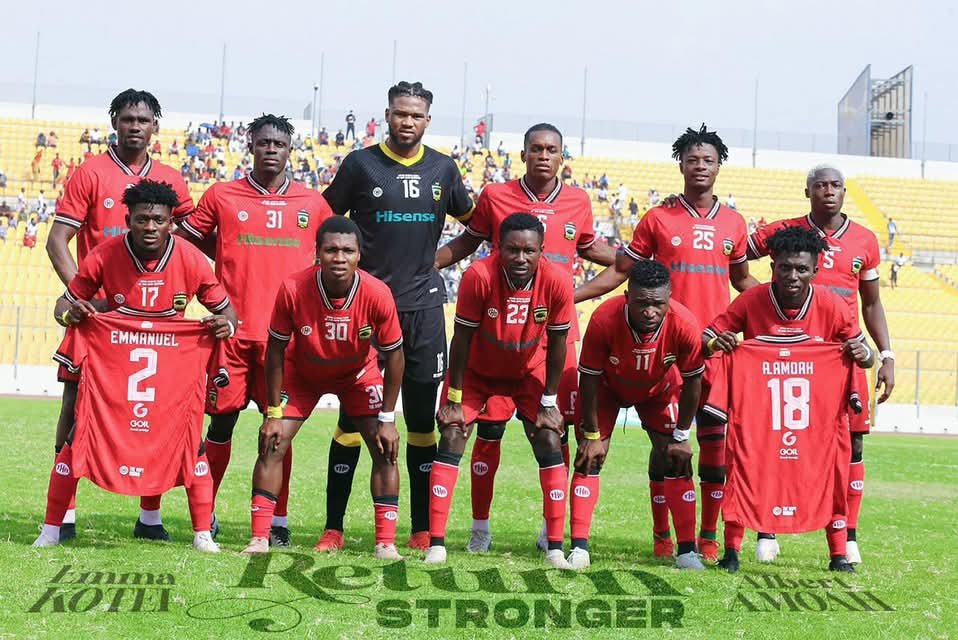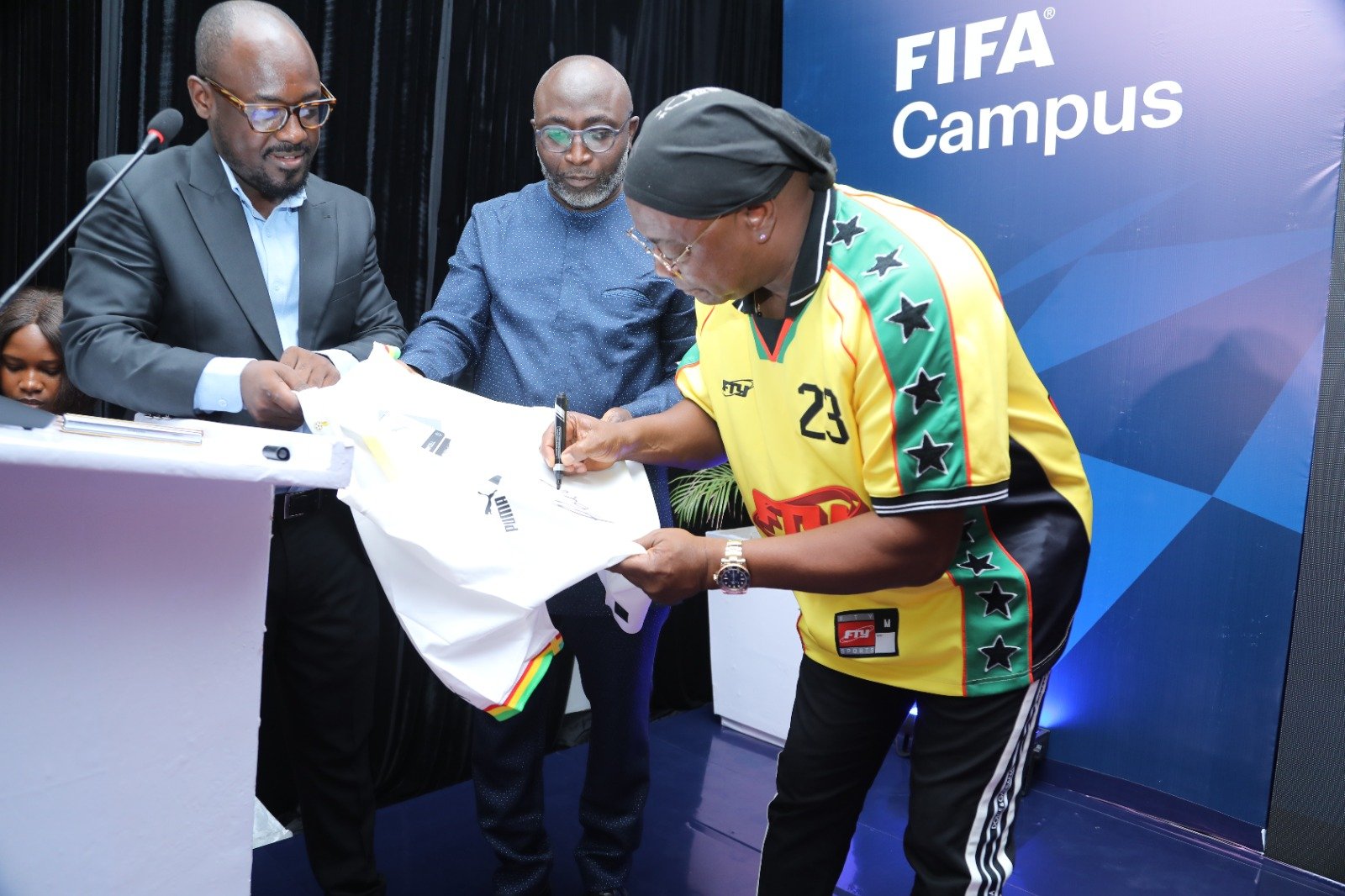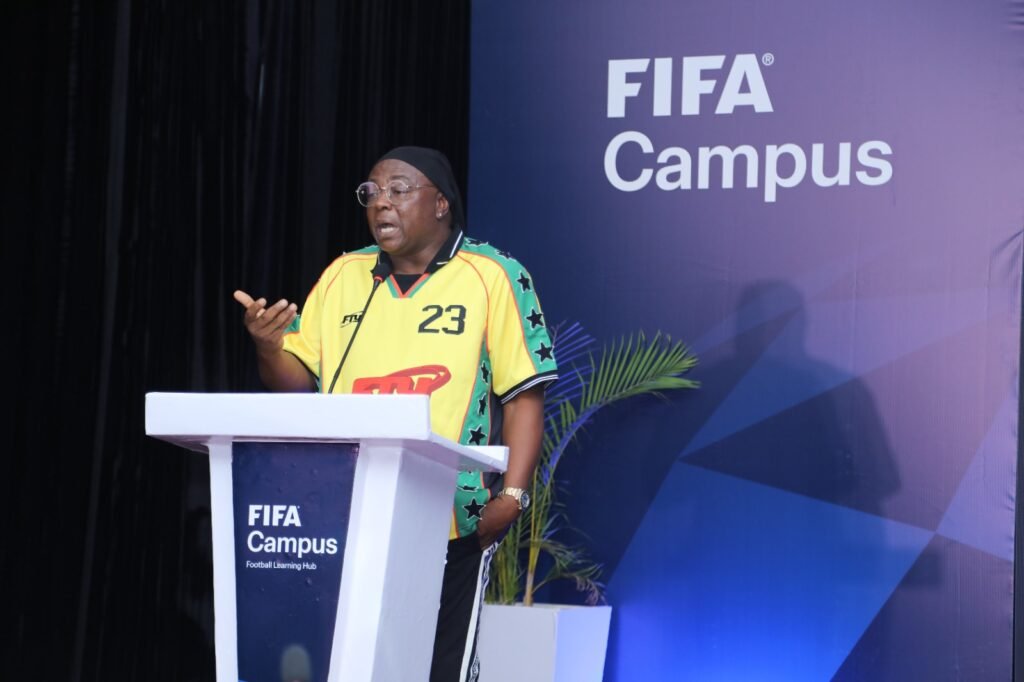Sports
Hunting for proper ‘Knights of the Whistle’

Officiating is the rock-layer of every sporting endeavour – peculiarly football.
Take it out and the game would stagger to a messy halt – most likely cascading into an orgy of preventable ‘blood-letting’ on the pitch – not to talk about the indignity it broadly spews out.
The sear of anguish and the torrent of pain of the May 9, 2001 disaster that recorded 127 deaths at the Accra Sports Stadium during a Premier League game between Hearts of Oak and Asante Kotoko, is still freshly etched on our minds.
Indeed, referees are the lifeblood of the game and wield a lot of power and authority as to making and unmaking the game with their kind of decisions. When the referee performs creditably well, he is lauded by the majority of supporters – even if their clubs lose.
On the reverse, the officials are given a bad name and hanged when they perform shoddily.
Indeed, the most unpleasant thing a club can experience is to suffer defeat through a bout of biased officiating!
Such cases are replete in our various leagues nationwide. It is almost a weekly trauma for some of the clubs that have no option, but to bear the agony and go through the painful motion.
Distressingly, the perpetrators – the centre referees and some of the assistant referees, have almost always walked away scot-free to enjoy their booties (bribes) – not giving a damn to the ‘carnage’ they may have caused.
Many of such disgraceful officials have been weeded out by the ‘Number 12’ Anas Aremeyaw Anas’ investigative piece. The rest may be hanging around to strike when the iron is hot. They have to be smoked out and cleared from the system in order to give football a new lease of life.
That is why one was highly thrilled to learn of efforts the Ghana Football Association (GFA) is taking to replenish its stock of referees – badly depleted after the Anas’ work that affected a decent number of the nation’s top brass.
About 75 referees were affected by the investigation as the ‘knights of the whistle’ were caught on camera collecting bribes to plunge the game into disrepute.
Later, the Referees Association of Ghana (RAG) emerged that it had exonerated 14 and suspended or banned 61 referees because there was no evidence beyond reasonable doubt to validate allegations of corruption and bribery against them.
CAF and FIFA had already banned the referees on the list of the RAG.
Three months after the allegations first surfaced, RAG found 61 referees culpable on charges of bribery and corruption.
Subsequently, the body splashed out 10-year suspensions to 53 referees and banned another eight for life after studying footage from the investigation, and 14 referees who appeared in the video were deemed to have no case to answer.
That is how badly bruised the refereeing situation in Ghana is; something the Referees Manager of the GFA – Alex Kotey – says he is fighting tooth-and-nail to reverse.
The GFA last Tuesday launched a ‘Catch them Young’ refereeing project to help recruit a new generation of young, budding and talented referees for the country.
Under the tag-line ‘Catch them Young Refereeing Policy,’ the move was to help replenish the stock left after the Anas exposé. Only three FIFA referees from the old stock – namely Daniel Laryea, Latif Adari, and Paul Atimaka, survived the ‘inferno.’
It is heartwarming to note that 10 new young promising referees are said to have managed to meander their way onto the FIFA list.
“Identifying young budding talents from the Senior High Schools (SHSs) and the tertiary levels and helping them develop the love and skills for refereeing and imbibing in them the spirit to upholding the integrity of the trade from this stage is one sure way of securing the future of refereeing in the country,” Mr Kotey asserted.
Steadily, Ghanaians were beginning to believe again in the local referee before the COVID-19 pandemic struck to put the season to ‘sleep’ in mid-March, this year.
One must add, however, that in its bid to stock up the referee deficit, the FA must make it a matter of urgency to institute a ‘snake-pit’ inquisition into their backgrounds. It is a crucial call!
Indeed, it is dangerous to open the doors to people whose backgrounds you are not certain of to join the noble world of officiating.
The integrity of referees in this country has been battered – though not beyond repairs – but we must ensure we do not worsen the situation. This is why the FA must do a lot more to fetch referees with integrity and moral uprightness into the fold as it charts a fresh course to bring sanity into the game.
PlainTalk with JOHN VIGAH
Sports
Kotoko withdraws from Ghana Premier League

Kumasi Asante Kotoko has withdrawn from the Ghana Premier League until further notice.
This follows an incident of hooliganism which occurred during their match with Nsoatreman FC leading to the death of a fan, Nana Yaw Frimpong, better known as Pooley.
In a statement issued by the management, the added that “Finally, Asante Kotoko wishes to state that all footballing activities of the senior team are on hold until further notice. Our stance remains unchanged, we will not resume footballing duties until justice is served, and concrete steps are taken to prevent such barbaric acts from ever happening again.”
They added “In the meantime, management has decided to suspend all activities relating to football on the pitch until further
investigations into the matter.”
Against this backdrop, they called on their archrivals saying, “It is time to end the cycle of violence hooliganism, and lawlessness that threatens the integrity of our game. We call on all clubs to support this cause, especially our greatest rivals on the pitch, Accra Hearts of Oak, because this is bigger than competition–it is about securing the future of our domestic league once and for all.”
“Asante Kotoko remains deeply heartbroken by the tragic events that unfolded at the Nana Koramansah Park, leading to the senseless murder of our cherished supporter, Francis Yaw Frimpong,”they added.
“The pain of his loss still lingers, but in these trying
times, we stand united as a club, a family, and a force for positive change in Ghanaian football. While our grief is immeasurable, we take solace in the fact that justice is beginning to take its course,” he said.
By Edem Mensah-Tsotorme
Read full statement below
Sports
FIFA Financial Governance Workshop: Share insights with local clubs- Abedi Pele

Former three-time African footballer of the year Abedi Ayew ‘Pele’ has called on the Ghana Football Association (GFA) to share lessons from the three-day high-level FIFA financial governance workshop.
The workshop held recently was focused on the latest insights and tools for enhancing financial governance and accountability in football administration.
This, according to Abedi Pele, must be shared with local clubs to help them understand the importance and value of the best financial practices to save Ghana football from its present downward spiral.


He made this known at the closing ceremony of the workshop last Friday in Accra, which was organised for representatives from 10 African countries.
The Ghanaian legend, while applauding FIFA for selecting Ghana to host the high-level intensive workshop, noted that workshops like the just-ended one were what the continent, and especially clubs in Ghana, were crying for to help and position them well for sponsorship and support from institutions of great repute to raise the level of the game higher.
“Issues of financial mismanagement, lack of accountability, transparency, and efficient resource use within football organisations have always been our bane here in Ghana, and with a workshop like this providing participants with valuable insights and tools to fortify their organisations’ financial foundations, ensuring long-term sustainability, accountability, and effective resource management, Ghanaian clubs will begin a reset to proper football management,” he said.
According to him “It’s a feather in the cup of the GFA to have FIFA selecting Ghana for this leg of the workshop. Now I call on you, General Secretary Prosper Harrison Addo, to make sure information from this workshop is spread across to all clubs in Ghana because these are the things they need to strengthen their governance framework and ensure the long-term growth and sustainability of the clubs.”
Mr Harrison Addo noted that it was a call in the right direction, and although his outfit has long started reforms in terms of the club licensing regulations, a lot more would be done to help clubs gain a firm foundation for the future success of the game.
“The workshop has been extremely helpful and equipped us with the tools and knowledge to uphold the highest standards, fostering trust and integrity within our football community,” the Maestro added.
Head of the Financial Governance Programme at FIFA, Christoph Suppiger, said the three-day session emphasised the importance of accountability, transparency, and responsible financial management within the context of the FIFA Forward programme and also helped Member Associations to know how to prevent conflict of interest, planning and budgeting, and the procurement process, as well as the importance of having adequate supporting documentation.
The workshop held under the banner of the newly established FIFA Campus, which serves as the central football learning hub for all FIFA capacity development and education initiatives, had Abedi Ayew decorating all the facilitators and participants with customized sashes as well as presenting signed Black Stars jerseys.
By Raymond Ackumey







